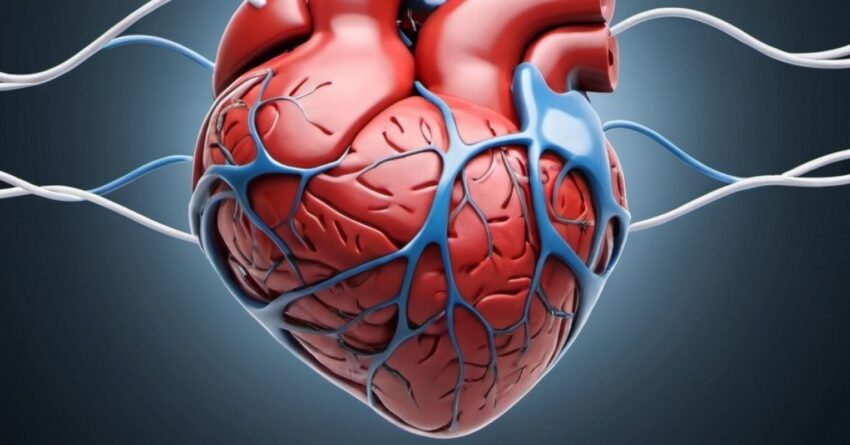For the next 60 seconds, close your eyes and focus on your heartbeat. Now pick a button on your keyboard and tap the button with your finger each time you think you feel a beat. Can you detect each heartbeat clearly? Or do you feel like you are guessing much of the time? Take a second to reflect on how confident you are in your perceptions.
When researchers ask participants to do this same task, they find that some people can accurately feel their heartbeats, while others sometimes fail to feel several beats or think they feel beats that didn’t occur. Along similar lines, there are key brain regions involved in heartbeat perception that can show different activity in different individuals. Together, such results suggest the brain may be better at listening to the heart in some people than in others. Based on this, our lab recently conducted a new study examining whether these differences might also contribute to psychological disorders.
Interoception
Being able to consciously feel your heartbeat is an example of interoception. This refers to the perception of internal states of your own body. Some other examples of interoception include things like feeling sensations in your stomach and intestines, or feeling changes in breathing difficulty, among many others.
Researchers are coming to believe that interoception may play a crucial role in emotional experience. For example, consider the last time you felt scared, angry, or excited. Did you have sensations of a racing heart? Elevated breathing? Hot and cold flashes in your skin? Uncomfortable feelings in your stomach? Tense or shaky muscles? Such bodily sensations are often major parts of emotional experience. In fact, it’s hard to imagine fully feeling an emotion without them.
Interoception may also be important for regulating emotional responses in the body. Simply put, the brain needs to have accurate information about the body to be able to control it effectively. Imagine trying to control your arm if you didn’t know where it was. This would no doubt be very difficult. In a similar way, it may be difficult for the brain to effectively control internal states of the body (e.g., to bring down your heart rate, or control stress hormone levels) if it doesn’t perceive the body accurately. Poor interoception might therefore help explain why body state regulation is often affected within emotional disorders.
New Heartbeat Perception Study
In a new study in our lab, led by graduate student Claire Lavalley, a heartbeat perception task was carried out by healthy individuals and those with depression, anxiety, substance use disorders, and/or eating disorders. Just as you did when reading the beginning of this post, participants were asked to pay attention to their heartbeat and press a button every time they felt it. They did this three times with different instructions: once where they were allowed to guess (“guessing”), once where they were only allowed to press the button when they were sure they felt it (“no-guessing”), and once where they were asked to hold their breath to make their heartbeat feel more intense (“breath-hold”).
We found that heartbeat perception accuracy was similar (and fairly low) across all groups in the guessing and no-guessing conditions. In healthy individuals, accuracy improved during the breath-hold when heartbeats got more intense. In contrast, none of the patient groups showed improvements in accuracy during the breath-hold. Interestingly, heart rate itself changed similarly in response to the breath-hold in all groups, and all groups reported increases in how intense their heartbeats felt.
So, what does this mean? Well, it appears to show that, in healthy individuals, the brain can successfully notice when the heartbeat signal gets stronger. However, in all the patient groups, even though the heartbeat signal did get stronger, the brain did not notice this change or perceive it differently. This may therefore reflect a type of perceptual inflexibility in patients, in which the heartbeat signal is always perceived the same way, even if it gets stronger. Another way to think about this is that, even though bodily signals became more reliable indicators of heartbeats during the breath-hold, the brain still did not “trust” these signals in the patient groups.
We think this may be important because unpleasant emotional states often involve more intense and elevated heart rate, and this is the exact situation in which it appears patients do not perceive their heartbeats accurately. This might lead to even greater difficulty in effectively regulating emotions and reducing these intense bodily responses.
Depression Essential Reads
Where Do We Go From Here?
Knowing that this problem exists is an important first step. The next research question is whether we can train people to be better at detecting their bodily signals. Once we do that, we can also check whether this type of training improves other clinical symptoms and helps patients feel better. This is a new, ongoing area of research and we hope it might lead to more effective psychological treatments going forward.
